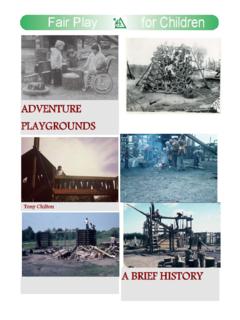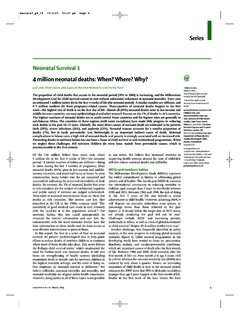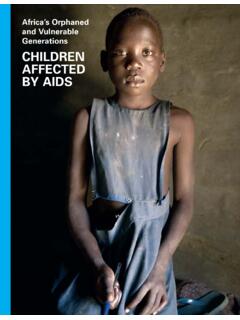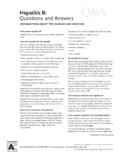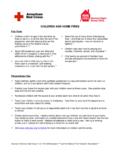Transcription of 2014 OPEN ACCESS children - Fair Play For Children
1 Children 2014 , 1, 302-317; open ACCESS . Children ISSN 2227-9067. Article The Role of Play in Children 's Palliative Care Sue Boucher 1,*, Julia Downing 2 and Rise Shemilt 3. 1. International Children 's Palliative Care Network (ICPCN), Assagay 3610, South Africa; Shuter &. Shooter Publishers (Pty) Ltd, Pietermaritzburg, 3212, South Africa; E-mail: 2. International Children 's Palliative Care Network, Assagay, 3610, South Africa; Makerere University, Kampala, Uganda; E-Mail: 3. Paediatric Palliative Care Service, Gaddum Centre, Manchester, M15 4AX, United Kingdom.
2 E-Mail: * Author to whom correspondence should be addressed; E-Mail: Tel.: +27-82-897-4420. External Editor: Ute Navidi and Sari Acra Received: 30 June 2014 ; in revised form: 25 August 2014 / Accepted: 28 August 2014 /. Published: 01 October 2014 . Abstract: Play is the universal language of childhood and the time and opportunity to play is every child's right. The role of play as a vehicle for communication, a tool for distraction and its value in the holistic development of a normal child is without dispute. The role and value of play increase proportionately when a child is made more vulnerable through illness or disability.
3 Despite this, providing time and opportunities to play can be overlooked or considered to be of little importance or relevance when the focus of the adult carers is the amelioration of clinical symptoms of the illness and on lessening the psychological impact the illness may have on the child. This paper outlines the role and the value of play as an integral component in the provision of palliative care for Children with chronic, life-threatening and life-limiting conditions. It will show how providing appropriate equipment, sufficient time and relevant play opportunities not only improves the very sick child's psychological wellbeing, but also allows the child to cast aside the confines and restrictions imposed upon them by their illness and for a few golden moments to be nothing more than a child at play.
4 Keywords: Children ; role of play; value of play; life limiting illness; life threatening illness; psychological wellbeing Children 2014 , 1 303. 1. Introduction The sky's awake so I'm awake and I have to play . (Princess Anna from Disney's Frozen). It is generally agreed that play is an important part of Children 's development, education and learning, and that play develops with the mind, and the mind develops with play [1 6]. Play is the language of Children . Play is the work of Children . Play is the way that Children learn about their world, become competent at skills, learn to cooperate with others and gain mastery over their emotions.
5 Play is what motivates Children to get out of bed in the morning. Think of Children and one thinks of play. Mention toys and one thinks of Children . However, thoughts of very sick Children or Children with severe limitations or restrictions on their mobility, their stamina or their cognitive capacity do not as quickly turn to thoughts of toys and play. As responsible adults our overwhelming impulse when faced with a very sick and vulnerable child is to find ways to improve that child's health, take away distressing symptoms and to provide the most appropriate medications and therapies.
6 It does not sit well with us that Children suffer and die, but they do. It is estimated that globally around 18,000 Children under the age of 5 years will die each day, a figure which equates to around 11 million Children dying every year [7]. While more than 50% of these deaths are from preventable causes [7] there are still millions of Children who will die this year or whose lives are threatened by diseases such as cancer, heart disease and genetic conditions. These Children live with conditions which will shorten their lives and lead to their death either in childhood or early adulthood [8].
7 While still not universally accessible [9,10], all Children with life-threatening and life-limiting conditions have the right to receive palliative care which aims to ameliorate the unpleasant symptoms of the illness or condition and improve the quality of life of the sick child and that child's family [10 13]. When a child is diagnosed with an illness or condition likely to considerably shorten their lifespan, there are many challenges as well as new and frightening experiences that both the child and the child's family will inevitably face.
8 These experiences can and often do overwhelm the child, the parents and family members and all those close to the family. The provision of palliative care from the moment of diagnosis allows the breathing space for those who care most for the child to adjust and to continually readjust to their new reality. When my son was diagnosed I felt as if all my self-esteem had disappeared. I could not see my future, and I felt like my family was a freak show for everybody to look at. All I. could think about was his death and thoughts of this preoccupied everything I did.
9 [14] ( ). These words of a mother whose child was diagnosed with a life-limiting illness illustrate this feeling of devastation and loss of control. Palliative care providers walk the journey from diagnoses, through to the end-of-life and into bereavement along with the child and the child's family, providing appropriate and compassionate support whenever and wherever it is needed. However, despite the devastating consequences of a terminal diagnosis, the child continues to have all the unique and ever-evolving needs, desires and the rights of any other child [15].
10 The overwhelming urge and desire Children 2014 , 1 304. to play still exists, indeed, it could be argued that because of the benefits of play, these Children have an even greater need to play than other Children [6] as can be seen in the case study in Box 1. Box 1. Case Study. Sunflower House Children 's Hospice in Bloemfontein, South Africa is seldom without the sound of Children playing and their noisy chatter and laughter. While the Children cared for at this hospice all have an illness or condition that threatens or will likely shorten their lives, on this warm afternoon in December 2008 most looked remarkably robust and were engaged in exuberant play, both in and out of doors.


